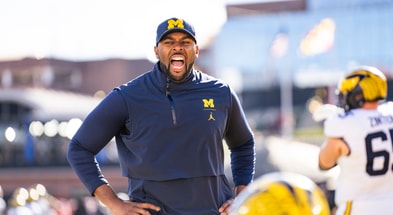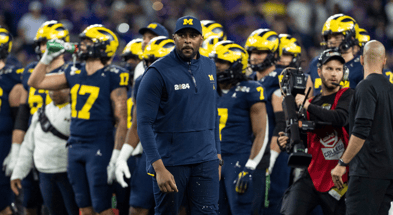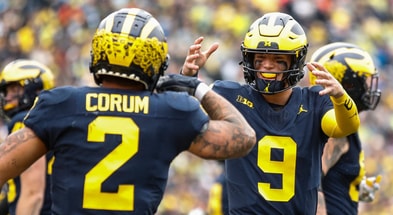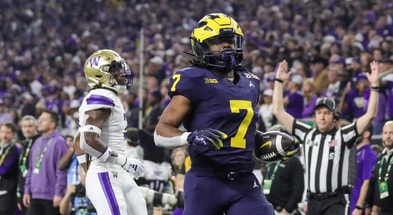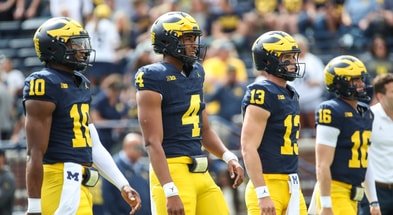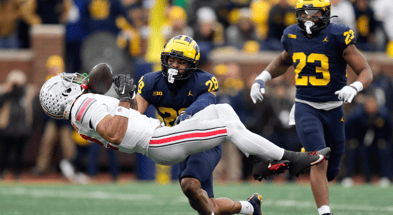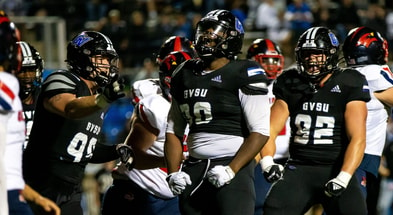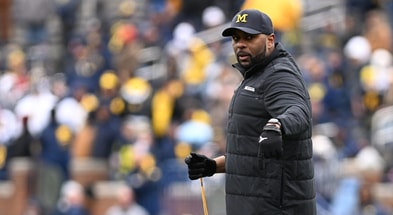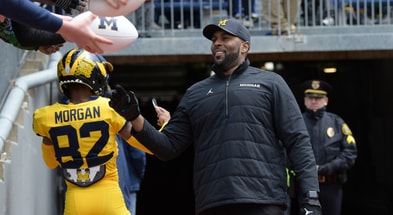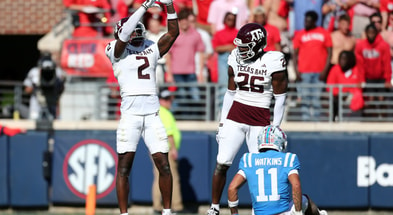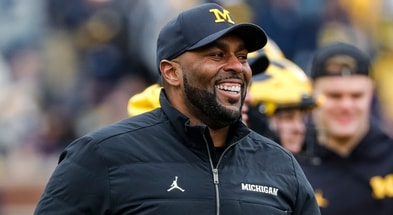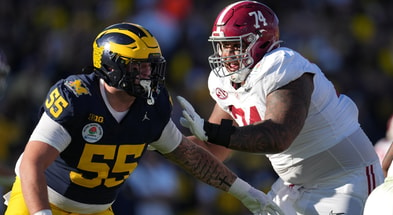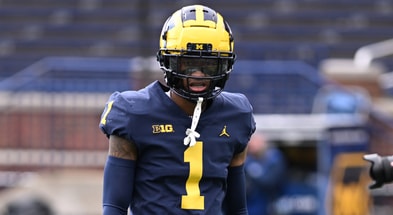Former Michigan TE Jake Butt on NIL: 'I'm not sold that this is ruining college football'
On the TNT Wolverine podcast, Michigan Wolverines football radio play-by-play commentator Doug Karsch said that if he were a fan and not media, he would likely tune out NIL and how it’s changed the sport he loves. Many fans are in that boat, of course, and some wish they were but, due to their passion for their team, cannot avoid paying attention.
College sports look much different than they did one year ago, five years ago, 10 years ago and on and on. There’s no debating that. But former Michigan tight end Jake Butt, while acknowledging that the landscaped has changed, also mentioning conference realignment, doesn’t believe it’s “blowing up.”
“I think we associate change with ‘blowing it up,’ but I’m not necessarily sold that it’s blowing it up,” Butt, a TNT Wolverine host, said.
RELATED
• Michigan football freshman class is ‘stunningly prepared physically’
• Michigan mailbag: Linebacker rotation, Sherrone Moore, Youssef Khayat’s freshman impact, more
In fact, he actually believes NIL and its impact on recruiting could create more parity in college football. More competition at the top is needed, with five of the last eight national champions coming from the SEC, and eight of the last 13 winners being just two schools, Alabama and Clemson (the Tigers are in the ACC).
“We see that one guy gets paid $8 million, and we think that every NIL deal is getting paid $8 million,” Butt continued. “That’s one percent of one percent, which is consistent with our world today. Most guys aren’t really making that level of cash.
“I think it’s actually creating more balance. Is it good for Texas football to be good? Absolutely. Texas football has been horrendous. Now they’re getting more balance. Miami is the same way.”
We’re just over one year into the NIL era. And while some schools like Texas A&M and Miami have begun recruiting at a higher level than they traditionally do, recruiting rankings aren’t the ones that matter at the end of a season. Recruiting at a high level correlates to more wins in most cases, but the practices some programs are using to reel in prospects may not be conducive to winning on the field in the long run.
Culture, character hard work and other basic principles still matter, Butt believes.
“At the end of the day, too, it’s not enough to just get talent; you have to develop talent,” Butt explained. “So some of these guys, if you’re just taking the initial pay check and you’re not developing talent, that’ll create its own balance.”
While it’s not easy to do in the moment, the former Michigan tight end urges college football fans to take a step back and wait to see how things play out over the next few years.
“There’s volatility whenever there’s change initially, then the dust settles down the line,” Butt said. “I think we’re going to see, two or three years from now the dust will settle a little bit. I’m not sold that this is ruining college football.”
Michigan is operating differently from other schools, of course, doing their best to stay out of the gray areas while remaining intent that they won’t cheat and use inducements in recruiting (which isn’t even NIL anyway, regardless of how it’s being framed by schools, boosters and some media).
Wolverines fans are right to be adamant their Michigan programs don’t get left behind, and those behind the scenes, like Valiant Management, the Champions Circle, and others are working hard to ensure U-M athletes profit greatly. Butt, though, is preaching patience at the same time, when it comes to the sport as a whole.

